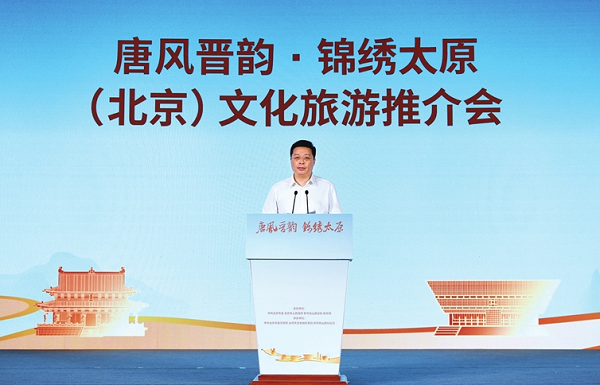
Taiyuan showcases its advantages in culture and tourism in Beijing. [Photo/Taiyuan news network]
North China's Shanxi province held a culture and tourism promotion event in Beijing on June 12, with representatives from the Shanxi government, Xinhua News Agency, and Beijing government in attendance.
Shanxi, honored as the cradle of Chinese civilization, is home to abundant mountains and rivers. Taiyuan, as the provincial capital, is uniquely suited to the development of culture and tourism industries.
In recent years, the city has been promoting the integrated development of culture and tourism, enhancing the quality of catering, accommodation, transportation, tourism, shopping, and entertainment services, and striving to become an important domestic and international cultural tourism destination.
In late June, the Shanxi Tourism Development Conference will be held in Taiyuan, which will feature various culture and tourism investment attraction activities aimed at showcasing new models, products, and equipment related to Shanxi's cultural tourism.
Taiyuan welcomes people from all over the country to visit and invest in the city, and it will spare no effort in providing first-class culture and tourism products, ensuring excellent services and a favorable environment for visitors.
Jing Ruyue, representing Xinhua News Agency, highlighted Taiyuan's rich cultural heritage at the event. He emphasized that Xinhua will provide more coverage of Shanxi's cultural heritage and Taiyuan's tourism highlights in the future.
As a "media-based think tank" and "think tank-based media outlet", Xinhua will conduct targeted investigations and research to provide valuable decision-making references for the stable and far-reaching development of Shanxi's culture and tourism industries.
Officials from the Taiyuan government also introduced the city's policies regarding investors, travel agencies, and tourists, with 15 culture and tourism projects signed into effect on-site, with a total investment of approximately 15.36 billion yuan ($2.11 billion).
